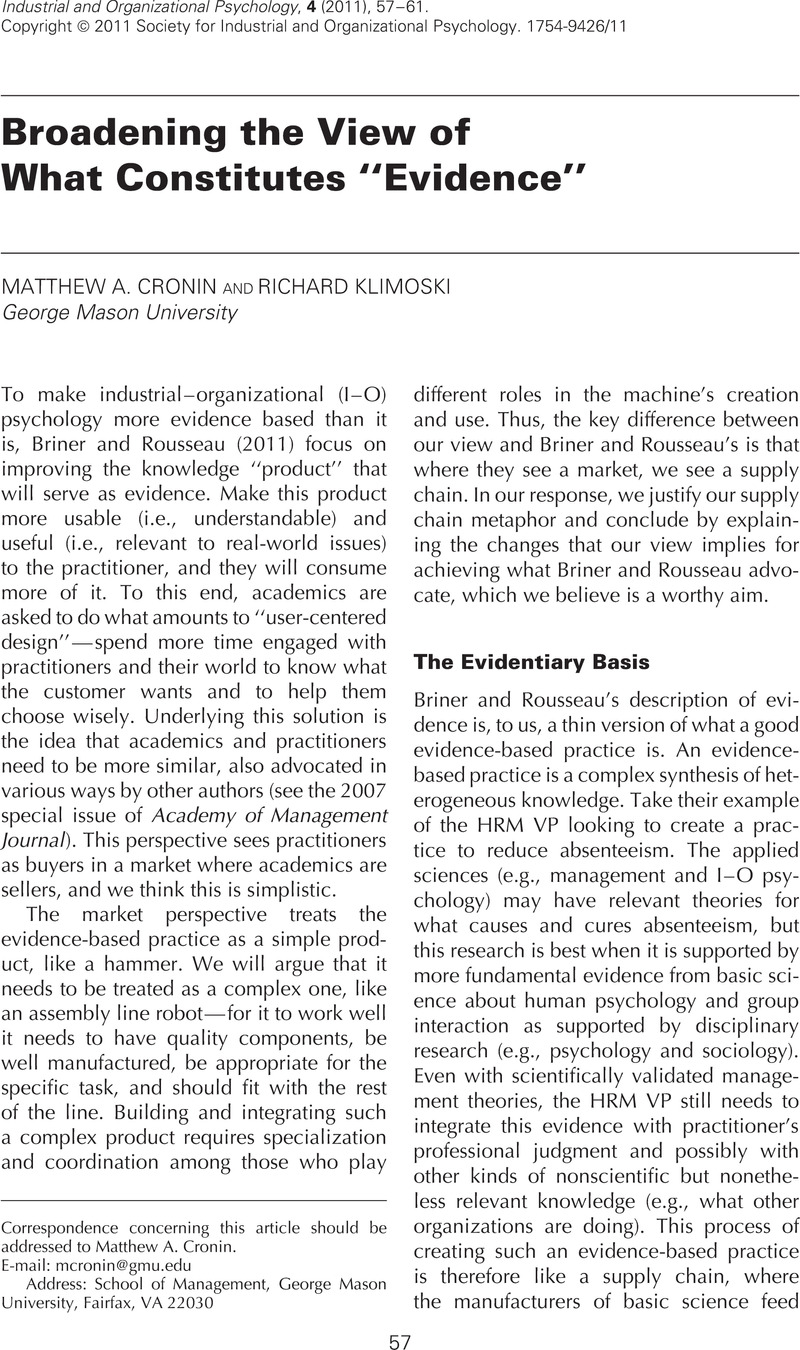Crossref Citations
This article has been cited by the following publications. This list is generated based on data provided by Crossref.
Johnson, Ryan C.
Kiburz, Kaitlin M.
Dumani, Soner
Cho, Eunae
and
Allen, Tammy D.
2011.
Work–Family Research: A Broader View of Impact.
Industrial and Organizational Psychology,
Vol. 4,
Issue. 3,
p.
389.
Briner, Rob B.
and
Rousseau, Denise M.
2011.
Evidence-Based I–O Psychology: Not There Yet but Now a Little Nearer?.
Industrial and Organizational Psychology,
Vol. 4,
Issue. 1,
p.
76.
Grant, Anthony M.
2012.
The Wiley‐Blackwell Handbook of the Psychology of Coaching and Mentoring.
p.
13.
Kepes, Sven
Bennett, Andrew A.
and
McDaniel, Michael A.
2014.
Evidence-Based Management and the Trustworthiness of Our Cumulative Scientific Knowledge: Implications for Teaching, Research, and Practice.
Academy of Management Learning & Education,
Vol. 13,
Issue. 3,
p.
446.
Bachkirova, Tatiana
Arthur, Linet
and
Reading, Emma
2015.
Evaluating a coaching and mentoring programme: Challenges and solutions.
International Coaching Psychology Review,
Vol. 10,
Issue. 2,
p.
175.
Chambers, Silvana
2016.
Regression discontinuity design: a guide for strengthening causal inference in HRD.
European Journal of Training and Development,
Vol. 40,
Issue. 8/9,
p.
615.
Rynes, Sara L.
and
Bartunek, Jean M.
2017.
Evidence-Based Management: Foundations, Development, Controversies and Future.
Annual Review of Organizational Psychology and Organizational Behavior,
Vol. 4,
Issue. 1,
p.
235.
Bachkirova, Tatiana
Arthur, Linet
and
Reading, Emma
2020.
Coaching Researched.
p.
361.



